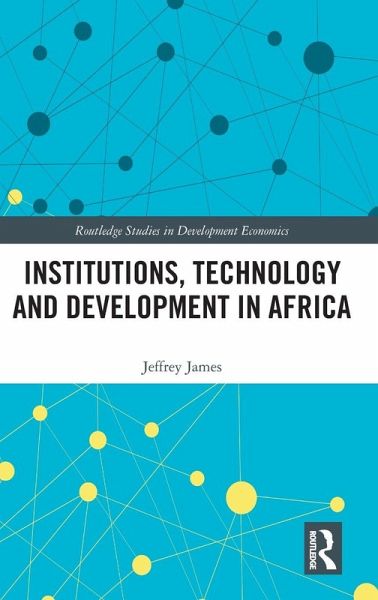
Institutions, Technology and Development in Africa
Versandkostenfrei!
Versandfertig in 1-2 Wochen
167,99 €
inkl. MwSt.
Weitere Ausgaben:

PAYBACK Punkte
84 °P sammeln!
An extensive literature has demonstrated that technologies in Sub-Saharan Africa are largely inappropriate:that is,that they are typically capital and import-intensive rather than labour and local input-intensive.These technologies have created a pattern of development that is highly unequal with widespread unemployment and under employment.













